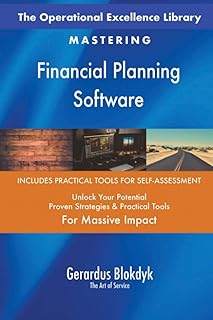Paraplanning roles have evolved significantly over the years, offering more than just a pathway to financial advising. It has become a career in itself, providing opportunities for skill development and growth within the financial services sector. Transferable skills, such as technical expertise and analytical capabilities, are at the core of paraplanning roles, allowing individuals to excel in various areas.
Grant Callaghan, head of paraplanning at Para-Sols, emphasizes the importance of communication and problem-solving skills in paraplanning. These skills not only enhance the role but also prepare individuals for leadership positions. Alex Russon, a managing consultant at Heat Recruitment, highlights that paraplanners often possess soft skills that naturally translate into leadership roles within firms offering training and progression opportunities.
Paraplanning serves as a springboard to diverse career paths beyond financial advising. Sue Andrews from KIS Finance notes that the organizational and problem-solving skills inherent in paraplanners make them well-suited for roles in compliance, management, and other areas. This versatility allows paraplanners to explore different avenues within the financial services industry.
According to industry experts, more paraplanners are transitioning into compliance roles or joining investment committees to leverage their skills in client assistance and avoid sales-focused responsibilities. Dan Atkinson, head of technical at EQ Investors, underscores the myriad possibilities that paraplanning offers, from financial advice to compliance, training, and marketing, indicating the broad spectrum of career options available.
As paraplanners progress in their careers, they often find themselves moving into leadership positions or taking on additional responsibilities. For instance, Grant Callaghan’s journey from intern to leading a team at Para-Sols showcases the growth opportunities within the field. Similarly, Dan Atkinson’s transition into a leadership role underscores the continuous development and branching-off options available to paraplanners.
The demand for career paraplanners is on the rise, with firms recognizing the value of investing in skilled professionals to navigate the complex landscape of financial planning. Sue Andrews highlights the role of paraplanners in supporting financial planners and alleviating their workload, emphasizing the importance of this profession in the current market.
Chris Stappard, managing director at Edward Reed Recruitment, emphasizes the job security and demand for skilled paraplanners, making it a candidate-driven market with ample opportunities for growth. The evolving nature of the role and the continuous demand for skilled professionals ensure a promising outlook for career paraplanners seeking stability and advancement.
Paraplanning offers a unique avenue for personal development, diverging from traditional career progression models by focusing on knowledge acquisition and skill enhancement. The industry’s focus on continuous learning and skill development positions paraplanners for long-term success and advancement, making it an attractive career choice for those seeking professional growth.
📰 Related Articles
- Master Soft Skills: Your Key to Career Success Amid AI
- Wild Elephants’ Problem-Solving Skills Key to Human-Wildlife Coexistence
- Upskilling Key to Career Success in Evolving Job Market
- Unlocking Diverse Investment Opportunities on the ASX
- Thriving Lake Macquarie Economy Offers Diverse Job Opportunities



![Financial Planning Essentials for Software Professionals [Hardcover] [Jan 01, 2013] CNBC TV 18](https://m.media-amazon.com/images/I/41Inf4wzeRL._AC_UL320_.jpg)


